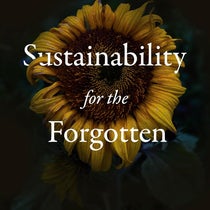Green Reads: Working-Class Environmentalism
“There is no need to separate, and thereby create an unnecessary conflict between, middle-class concerns about wilderness and climate change and working-class concerns about human health, safety and economic survival.”
- Karen Bell, Working-Class Environmentalism
Working-Class Environmentalism: An Agenda for a Just and Fair Transition to Sustainability by Karen Bell unpacks the divide between the working and upper-middle classes within the environmentalism movement. Bell highlights how working-class environmentalists’ goals tend to be centered around environmental justice in the form of clean air, clean drinkable water, access to safe green spaces, and reliable public transit, while also addressing issues of flooding, food poverty, and undernourishment. Conversely, upper-middle-class environmentalists tend to focus on biodiversity loss and endangered species, while promoting ‘green consumerism,’ which the working class often can’t afford, and ‘green jobs’ that are detrimental to workers’ health.
The working class faces a unique set of challenges in the face of climate change and its causes. Karen Bell homes in on the physical and mental health of working-class persons who live and work near toxic waste sites and landfills, noting that the wealthy can not only afford to move but, moreover, “…wealthy areas are protected from large-scale redevelopment.” Residents suffering from ‘time poverty’ due to working long hours in order to make enough money to survive may not always have the time or energy to engage in the level of community work that resistance to such issues would require. This is just one of many reasons why class must be a consideration when opening discussions around environmentalist organizing.
Environmentalism in its current form is sorely lacking in sufficient consideration of the working-class or the importance of working with the local communities that will be most directly impacted, and coming up with solutions that recognize the needs of and potential harm to these neighborhoods. Working-Class Environmentalism encourages us to not only do a better job at promoting existing sustainability organizations, of which many interested parties may not even know exist, but also highlight the successes of these orgs and allow them to be led by community members who will consider the human cost.
“Working-class people have been and continue to be environmentalists. They are often impacted first, most directly, and most severely by environmental degradation. The working class are, therefore, integral to environmental activism.” - Karen Bell
What We Can Do:
As outlined in Working Class Environmentalism
- “Legislative Change: Make class an equalities and human rights issue”
- “Policy Change: Reduce inequality”
- “Social Movement Change: Radicalize the environmental movement”
- “Explicitly connect the environment to public health”
- “Connect environmentalism with everyday life”
- “Connect the local to the global”
- “Focus on the companies and governments as the main culprits of unsustainability”
- “Build coalitions between workers’ organizations and environmental organizations”
- “Connect environmentalism with a call to end capitalist exploitation”
- “Political Change: Create an eco-social state based on sharing”
- “Revolutionary Change: Dismantle capitalism”
According to community members interviewed in Working Class Environmentalism
- “Make it fun…”
- “Have working-class people and ethnic minorities at the core of your campaign.”
- “Be willing to pay people…”
- “Stop bringing in these external consultants… use local expertise…”
More recommended reading on the subject
- The Citizen's Guide to Climate Success: Overcoming Myths that Hinder Progress by Mark Jaccard
- Science by the People: Participation, Power, and the Politics of Environmental Knowledge by Aya H. Kimura and Abby Kinchy
- Linking Sustainable Community Activities to Pollution Prevention: A Sourcebook by Beth E. Lachman
- Beyond Politics: The Private Governance Response to Climate Change by Michael P. Vandenbergh, Jonathan M. Gilligan
- Everyday Life-Environmentalism: Community Sustainability and Resilience in Asia by edited by Daisaku Yamamoto and Hiroyuki Torigo
- Ecopedagogy and the Global Environmental Citizen: Critical Issues, Trends, Challenges and Possibilities by authored and edited by Greg William Misiaszek











